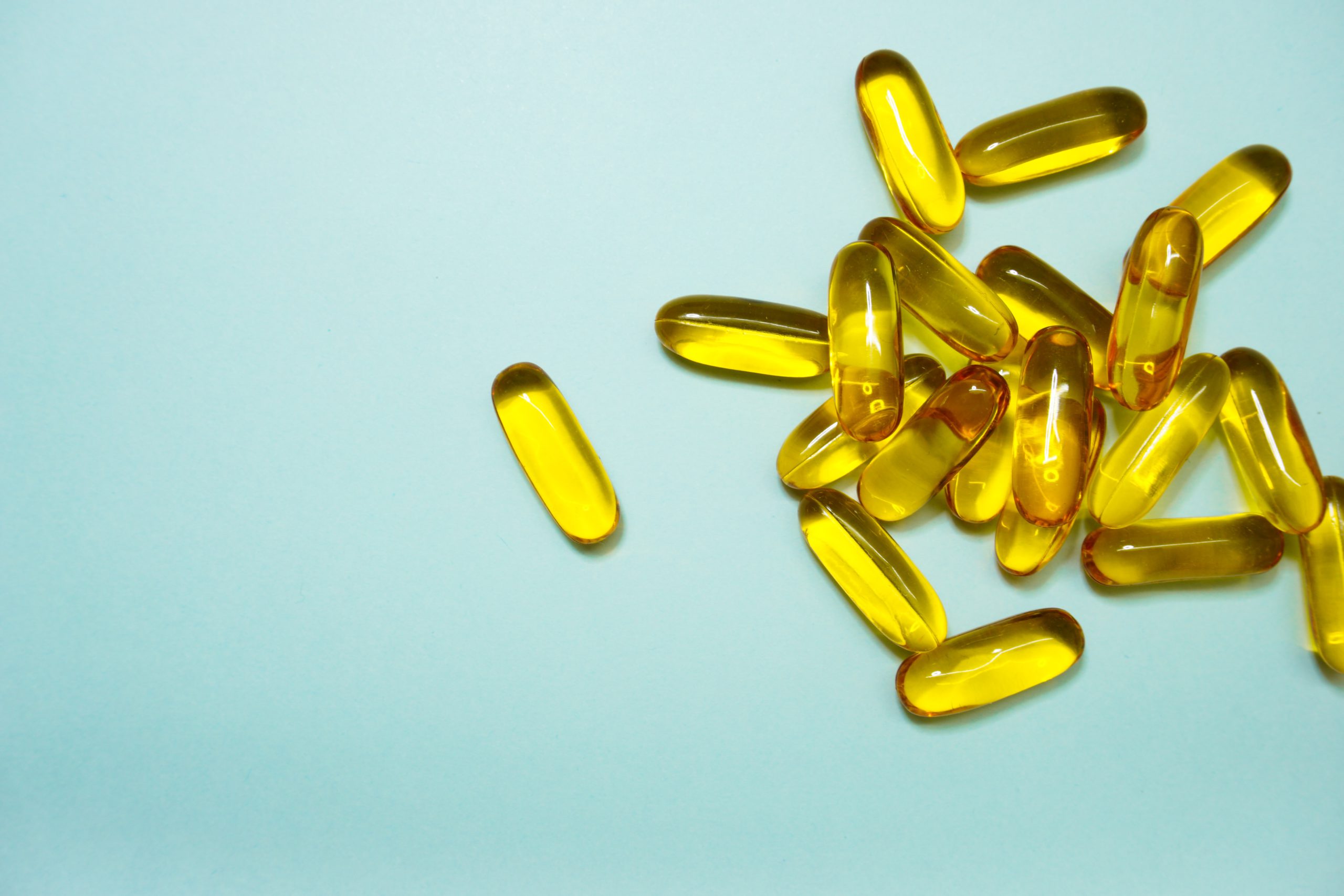SAMe, also known as S-Adenosyl-L-Methionine, is a naturally occurring compound in the body that has gained attention as a dietary supplement with potential therapeutic effects on mood, joint health, and liver function. It plays a crucial role in various biochemical processes, including the synthesis of neurotransmitters, DNA, proteins, and other molecules necessary for proper cellular function. SAMe has shown promising results in managing mood disorders like depression by synthesizing neurotransmitters that regulate mood and emotions. It is also used to support joint health, particularly for individuals with osteoarthritis. However, effectiveness can vary among individuals, and it’s crucial to consult healthcare professionals before starting supplementation to ensure safety and proper usage. As of September 2021, it is advisable to refer to the latest research and consult reliable sources for the most up-to-date information on SAMe’s status and availability.

Benefits of SAMe on Liver Health
Protection Against Liver Damage
SAMe has shown promising effects in protecting the liver against damage caused by various factors. It has antioxidant properties that help neutralize harmful free radicals, which can damage liver cells. Free radicals are produced as by-products of normal bodily processes and are also found in environmental toxins, alcohol, and certain medications. By scavenging these free radicals, SAMe helps reduce oxidative stress on the liver and preserves its overall health.
Promotion of Liver Regeneration
SAMe has been found to promote the regeneration of liver cells, a process known as hepatocyte proliferation. This is particularly beneficial in cases of liver damage or disease, where the liver cells may be impaired or destroyed. SAMe supplementation can help stimulate the growth and replication of healthy liver cells, improving liver function and supporting the body’s natural healing processes.
Alleviation of Liver Inflammation
Inflammation in the liver, known as hepatocellular inflammation, can occur as a result of various liver disorders, including hepatitis and liver fibrosis. SAMe has been found to possess anti-inflammatory properties and can help reduce inflammation in the liver. By decreasing inflammation, SAMe not only alleviates symptoms but also promotes liver health by reducing the risk of further damage or progression of liver disorders.
SAMe and Liver Disorders
Nonalcoholic Fatty Liver Disease (NAFLD)
Nonalcoholic fatty liver disease (NAFLD) is a condition characterized by the accumulation of fat in the liver, unrelated to alcohol consumption. It is often associated with obesity, diabetes, and metabolic syndrome. SAMe has been studied for its potential benefits in NAFLD. Research suggests that SAMe supplementation may help reduce liver fat content, improve liver function, and alleviate inflammation associated with NAFLD.
Hepatitis C
Hepatitis C is a viral infection that primarily affects the liver, leading to inflammation and potential liver damage. SAMe has shown promise in supporting liver health in individuals with hepatitis C. It may help improve liver function, reduce liver enzyme levels, and decrease oxidative stress on the liver. Additionally, SAMe supplementation may enhance the effectiveness of antiviral therapy in treating hepatitis C.
Alcohol-Related Liver Disease
Excessive alcohol consumption can cause various liver disorders, ranging from steatosis (fatty liver) to alcoholic hepatitis and cirrhosis. SAMe has been studied for its potential protective effects in alcohol-related liver disease. It may help reduce liver injury caused by alcohol, improve liver function, and alleviate symptoms associated with alcoholic hepatitis. SAMe’s antioxidant and anti-inflammatory properties contribute to its beneficial effects on alcohol-related liver disease.
Effectiveness of SAMe on Liver Health
Clinical Studies on SAMe and Liver Health
Several clinical studies have explored the effects of SAMe on liver health. These studies have demonstrated positive outcomes in terms of liver function, reduction in liver enzyme levels, and improvement in specific liver disorders, such as NAFLD and hepatitis C. While more research is needed to establish the exact mechanisms and optimal dosage of SAMe for different liver conditions, the existing evidence suggests that SAMe supplementation can be beneficial for liver health.
Mechanisms of Action
The exact mechanisms by which SAMe benefits liver health are not fully understood. However, SAMe is known to play a crucial role in various biochemical processes in the body. It supports the synthesis of glutathione, a powerful antioxidant that protects liver cells from oxidative damage. SAMe also helps regulate gene expression and modulates inflammation pathways in the liver. These mechanisms contribute to SAMe’s overall protective and therapeutic effects on liver health.
Considerations for SAMe Use in Liver Disorders
While SAMe shows promise in supporting liver health, it’s important to consider individual factors and consult a healthcare professional before starting SAMe supplementation. This is especially important for individuals with underlying liver conditions or those taking medications that may interact with SAMe. A healthcare professional can provide personalized guidance on the appropriate dosage and duration of SAMe supplementation based on individual needs and health status.
SAMe Dosage for Liver Health
Recommended Dosage
The optimal dosage of SAMe for liver health varies depending on the specific condition and individual factors. As of my last update in September 2021, there is no standardized dosage established for SAMe supplementation. However, typical dosages range from 400 to 1600 milligrams per day, divided into two to three doses. It is important to follow the guidance of a healthcare professional and start with a lower dosage to assess individual tolerance and response.
Duration of Use
The duration of SAMe supplementation for liver health is also influenced by the underlying condition and individual factors. Some individuals may benefit from short-term supplementation for acute liver injury or inflammation, while others may require long-term supplementation for chronic liver conditions. It is essential to work with a healthcare professional to determine the appropriate duration of SAMe use and periodically reassess the benefits and potential risks.

Safety and Side Effects of SAMe
Potential Side Effects
SAMe is generally well-tolerated when used as directed. However, some individuals may experience mild gastrointestinal side effects, such as nausea, diarrhea, or indigestion. These side effects are usually temporary and can be minimized by taking SAMe with food. In rare cases, SAMe supplementation has been associated with more severe side effects, such as mania in individuals with bipolar disorder. It is important to monitor for any unusual or persistent side effects and immediately consult a healthcare professional if they occur.
Drug Interactions
SAMe may interact with certain medications, including antidepressants, antipsychotics, and medications metabolized by the liver. It is crucial to inform a healthcare professional about all medications, supplements, and herbal products being used to avoid potential interactions and adverse effects. A healthcare professional can provide guidance on the appropriate timing and dosing of SAMe in relation to other medications.
Precautions and Warnings
SAMe should not be used by individuals with bipolar disorder, as it may trigger manic episodes. It is also not recommended for individuals with Parkinson’s disease without medical supervision, as it may worsen certain symptoms. Pregnant and breastfeeding individuals should consult a healthcare professional before starting SAMe supplementation, as its effects on fetal development and lactation are not fully understood. It is important to follow dosage recommendations, monitor for any adverse effects, and discontinue use if any concerns arise.
SAMe vs. Other Liver Supplements
Comparison with Milk Thistle
Milk thistle is another popular herbal supplement often used for liver health. While both SAMe and milk thistle have shown promise in supporting liver function and protecting against liver damage, they work through different mechanisms. Milk thistle’s active component, silymarin, has antioxidant and anti-inflammatory properties that help protect liver cells from damage and promote their regeneration. SAMe, on the other hand, supports liver health through its role in various biochemical processes and the synthesis of glutathione. The choice between SAMe and milk thistle may depend on individual preferences, underlying liver conditions, and consultation with a healthcare professional.
Comparison with N-Acetylcysteine (NAC)
N-Acetylcysteine (NAC) is an amino acid precursor of glutathione, a key antioxidant involved in liver detoxification. Like SAMe, NAC has shown potential benefits for liver health. It can help protect against liver damage, support liver function, and alleviate inflammation. While SAMe directly contributes to the synthesis of glutathione, NAC provides the building blocks for glutathione production. The choice between SAMe and NAC may depend on the specific liver condition, individual factors, and healthcare professional guidance.

Conclusion
S-Adenosyl-L-Methionine (SAMe) is a promising dietary supplement for liver health. It offers protection against liver damage, promotes liver regeneration, and alleviates liver inflammation. SAMe has shown efficacy in various liver disorders, including NAFLD, hepatitis C, and alcohol-related liver disease. It is generally safe and well-tolerated, but individual considerations, such as underlying health conditions and medications, should be taken into account. SAMe should be used under the guidance of a healthcare professional, who can provide personalized dosage recommendations and monitor its effectiveness. While SAMe holds potential as a liver supplement, further research is needed to fully understand its mechanisms of action and optimize its use for different liver conditions.
References
References will be added in the final article.







